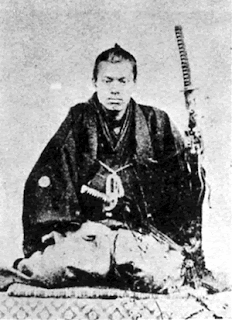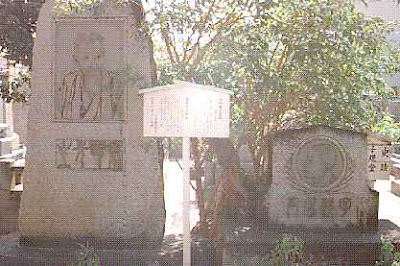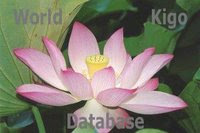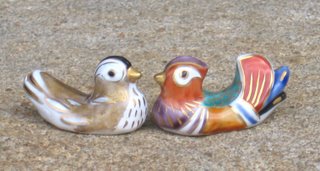:::::::::::::::::::::::::::::::::::::::::::::::::::::::::::::::::::::::::::::::::::::::::::::::::::::
Naito Meisetsu 内藤鳴雪

七転八起のそれも花の春
nana korobi ya oki no sore mo hana no haru
seven times down, eight up
this too
cherry blossoms of spring
七転八起の我も花の春
nana korobi ya oki no ware mo hana no haru
seven times down, eight up
that's me !
cherry blossoms of spring

From 日本大歳時記, Kodansha 1983
:::::::::::::::::::::::::::::::::::::::::::::::::::::::::::::::::::::::::::::::::::::::::::::::::::::
Memorial Day for Meisetsu,
Meisetsu Ki 鳴雪忌 (めいせつき)
"Old Plum Tree Day", Roobai Ki 老梅忌(ろうばいき)
kigo for early spring
:::::::::::::::::::::::::::::::::::::::::::::::::::::::::::::::::::::::::::::::::::::::::::::::::::::
Naitoo Meisetsu 内藤鳴雪
Naito Nariyuki, Meisetsu Naito, Nantoo 南塘
1847 - 1926, February 20
1926年(大正15年)
His Haiku Name was "Old Plum Tree" Roobai I 老梅居, 老人梅居

His father was Fusaosuke and his mother Yaso.
He was a samurai of the Matsuyama Feudal Domain, born in the Residence in Edo. He was interested in education and literature, especially the Chinese classics. He became caretaker of the dormitory of Tokiwa-kai.
He became a friend of Takahama Kyoshi at age 46 although he was 20 years his elder, and started to write haiku too. He achieved great fame for his poetry during the late Meiji and Taishō eras.
He died in Azabu, Tokyo at the age of 80.
His death haiku
ただ頼む湯婆一つの寒さかな
tada tanomu yuba hitotsu no samusa kana
It is so cold today
That I request only a hot water bottle
To warm up myself now

Here is a sequence of Haiku from Shiki and Seigetsu
風流のはや髭に出し去年の麦
Thus the elegance shows itself
On the beard as the wheat of
The last year put out
(Shiki)
秋高く疎髯を撫して在すらん
The autumn sky is high
He will be stroking his sparse beard
I suppose in this day
(Seigetsu 霽月, 1904)
石鎚に又見る雪や鳴雪忌
I take a view of
The snow of Mt.Ishizuchi every year at
The anniversary of Meisetsu's death
(Seigetsu, 1937)
The tower of Mr.Meisetsu's beard
(Shoujuji Temple)
:::::::::::::::::::::::::::::::::::::::::::::::::::::::::::::::::::::::::::::::::::::::::::::::::::::
東雲の ほがらほがらと 初桜
At open and blight dawn,
The first cherry blossoms of the year
Start to be in bloom
詩は祖父に 俳句は孫に 春の風
I have learned Chinese poems
From Grandfather and Haiku from his Grandson
It's just blowing spring breeze
At Shinonome Shrine
Meisetsu Naito's 70th birthday in 1918
元日や 一系の天子 不二の山
A Happy New Year's Day
We have a family of Emperor and
Mt. Fuji in this country
At Dogo Park, Matsuyama
April of 1925
功(いさおし)や 三百年の 水も春
Distinguished service for repair work
Water of river flowing for three-hundreds years
Look like in spring now
(Meisetsu)
寶川 伊豫川の秋の 出水哉
We have the great flood
of Takara River and Iyo River that
Occur in every autumn here
(Seigetsu (村上霽月)
At Raikoji Temple
:::::::::::::::::::::::::::::::::::::::::::::::::::::::::::::::::::::::::::::::::::::::::::::::::::::

gantan ya ikkei no tenshi fuji no yama
New Year's Day -
one line of Emperors
and Mt. Fuji
This haiku is by Naito Meisetsu (1847-1926), another Matsuyama haiku master.
It is a celebration of the New Year, in a rather nationalistic vein, mentioning the unbroken tradition of the imperial house and Mt. Fuji as the two most characteristic symbols of Japan. Although by no means the best haiku of Meisetsu, it became the first kuhi that was set up in Matsuyama. This was already in 1918 - the first kuhi for Shiki would only be set up in 1933.
Copyright © 2003-2006 Ad G. Blankestijn
:::::::::::::::::::::::::::::::::::::::::::::::::::::::::::::::::::::::::::::::::::::::::::::::::::::

After having a bath
I fan myself by
The folding fan in winter
湯上りを 暫く冬の 扇かな
:::::::::::::::::::::::::::::::::::::::::::::::::::::::::::::::::::::::::::::::::::::::::::::::::::::
choochoo no shitau hana wa ya kan no ue
Butterflies
love and follow this flower wreath -
that on the coffin lies.
Tr. Harold Henderson
:::::::::::::::::::::::::::::::::::::::::::::::::::::::::::::::::::::::::::::::::::::::::::::::::::::
女一人僧一人雪の渡し哉
onna hitori soo hitori yuki no watashi kana
one woman
one monk
river crossing in the snow
Tr. Gabi Greve
This reminds me of the Zen story
Monk carrying Woman across the River
:::::::::::::::::::::::::::::::::::::::::::::::::::::::::::::::::::::::::::::::::::::::::::::::::::::

馬方の馬にものいふ夜寒かな
umakata no uma ni mono-iu yosamu kana
the horse guide
says something to his horse -
this cold night
Tr. Gabi Greve
umakata 馬方 "horse man", horse owner or leader
can lead a horse by hand, or sit on it or be the driver of a carriage.
:::::::::::::::::::::::::::::::::::::::::::::::::::::::::::::::::::::::::::::::::::::::::::::::::::::
waga koe no fukimodosaruru nowaki kana
The autumn blast
Blows back to me
My own voice
Tr. Blyth
:::::::::::::::::::::::::::::::::::::::::::::::::::::::::::::::::::::::::::::::::::::::::::::::::::::
Wind-chime
fresh purchased -
already the town's bell.
Traveling priest
vanishing in mist,
trailed by his bell.
or
The travelling monk has vanished in the mists;
But still his little silver bell persists.
All I ask of the world,
a hot water bottle -
I'm cold!
© www.terebess.hu
:::::::::::::::::::::::::::::::::::::::::::::::::::::::::::::::::::::::::::::::::::::::::::::::::::::
A spring full of sun
on the tail of the peacock—
how it sparkles!
tr. by Stephen Addison
:::::::::::::::::::::::::::::::::::::::::::::::::::::::::::::::::::::::::::::::::::::::::::::::::::::
おほかたの故人空しや鳴雪忌
ookata no yuebito adashi ya Meisetsu ki
Takahama Kyoshi 高浜虚子
この道をふみもまどはず鳴雪忌
kono michi o fumi mo madowazu Meisetsu ki
Tomiyasu Fuusei 富安風生
Haiku by Meigetsu
したゝかに雨だれ落つる芭蕉かな
稲妻のあとは野山もなかりけり
屋根越に僅かに見ゆる花火かな
花木槿弓師が垣根夕日さす
寒声は女なりけり戻橋
暁や溲瓶(しびん)の中のきりぎりす
湖に山火事うつる夜寒かな
後の雛うしろ姿ぞ見られける
砂浜や松折りくべて蒸し鰈
初冬の竹緑なり詩仙堂
人うめし印の笠や枯芒
折りくべて霜湧きいづる生木かな
滝殿に人あるさまや灯一つ
朝寒や三井の仁王に日のあたる
朝寒や通夜から戻る二人連
灯のさして菖蒲かたよる湯舟かな
盃の花押し分けて流れけり
鳩吹の森の中道分れ行く
矢車に朝風強き幟かな
美しき蒲団干したり十二欄
貰ひ来る茶碗の中の金魚かな
爺婆の蠢き出づる彼岸かな
輪飾や我は借家の第一号
quote: 俳句俳話ノート
:::::::::::::::::::::::::::::::::::::::::::::::::::::::::::::::::::::::::::::::::::::::::::::::::::::
Haiga Meisetsu Naito
More PHOTOS !
More Reference LINKS
Murakami Seigetsu 村上霽月
:::::::::::::::::::::::::::::::::::::::::::::::::::::::::::::::::::::::::::::::::::::::::::::::::::::
Death Poems, Death Haiku
Memorial Days of Famous People SAIJIKI
Saijiki of Japanese Ceremonies and Festivals
[ . BACK to DARUMA MUSEUM TOP . ]
[ . BACK to WORLDKIGO . TOP . ]
:::::::::::::::::::::::::::::::::::::::::::::::::::::::::::::::::::::::::::::::::::::::::::::::::::::








2 comments:
この鳴雪はどんな想いで、江戸から明治へ時代を乗り切って生きたでしょう?
江戸住まいの松山藩の小倅が小さな声で歌って唯ただ長生きをした。
そんな風に気がします。
sakuo。
Thanks for this.
I enjoyed Meisetsu's haiku a lot.
Post a Comment